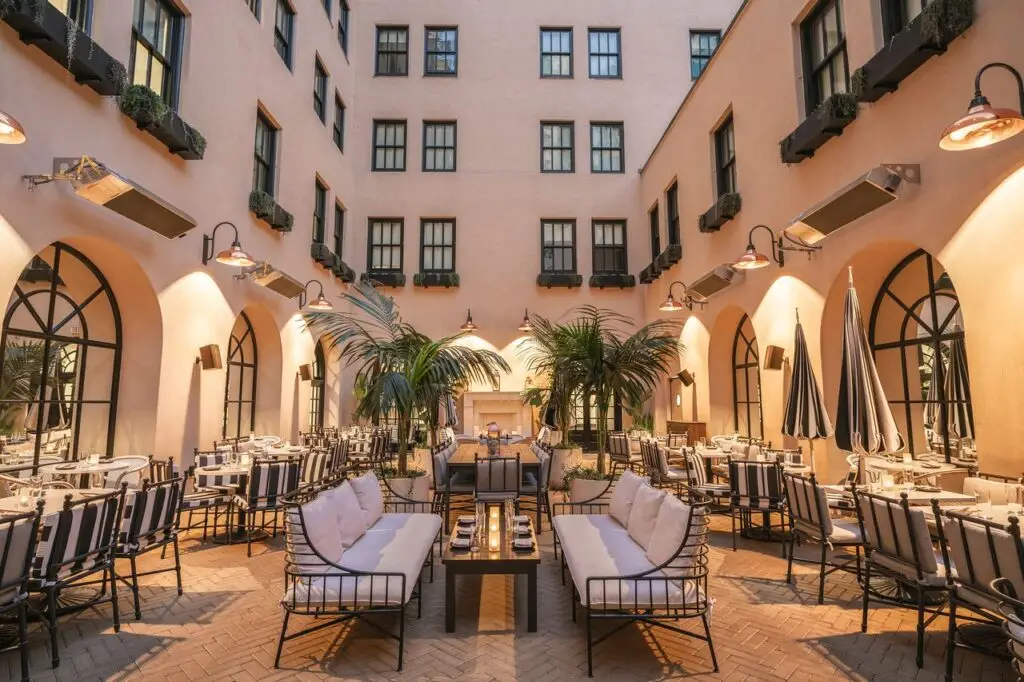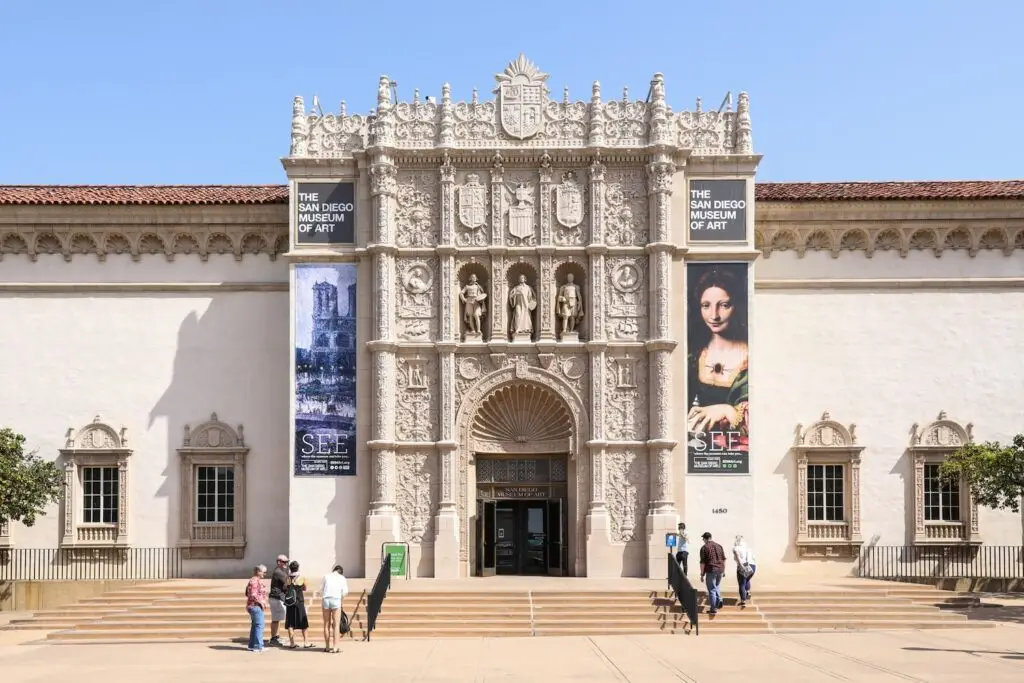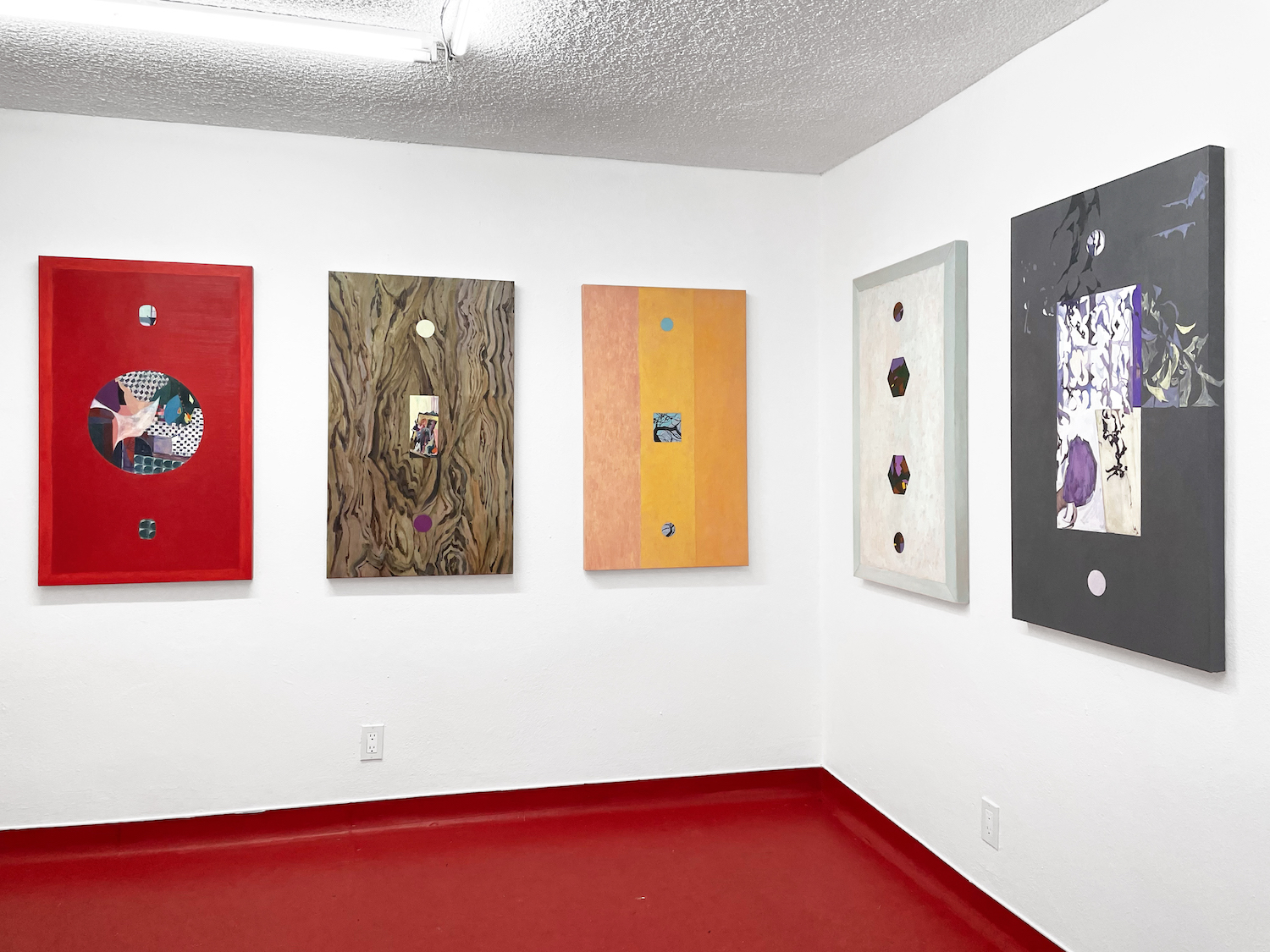When he and I were small, my younger brother used to claim he could see without his glasses. He’d press the tips of his thumbs and forefingers together, leaving a tiny diamond of space to peer through. With everything else blocked out, he’d say, a once-blurry sliver of a scene would shift into sharpness.
San Diego artist Lizzie Zelter knows that trick, too.
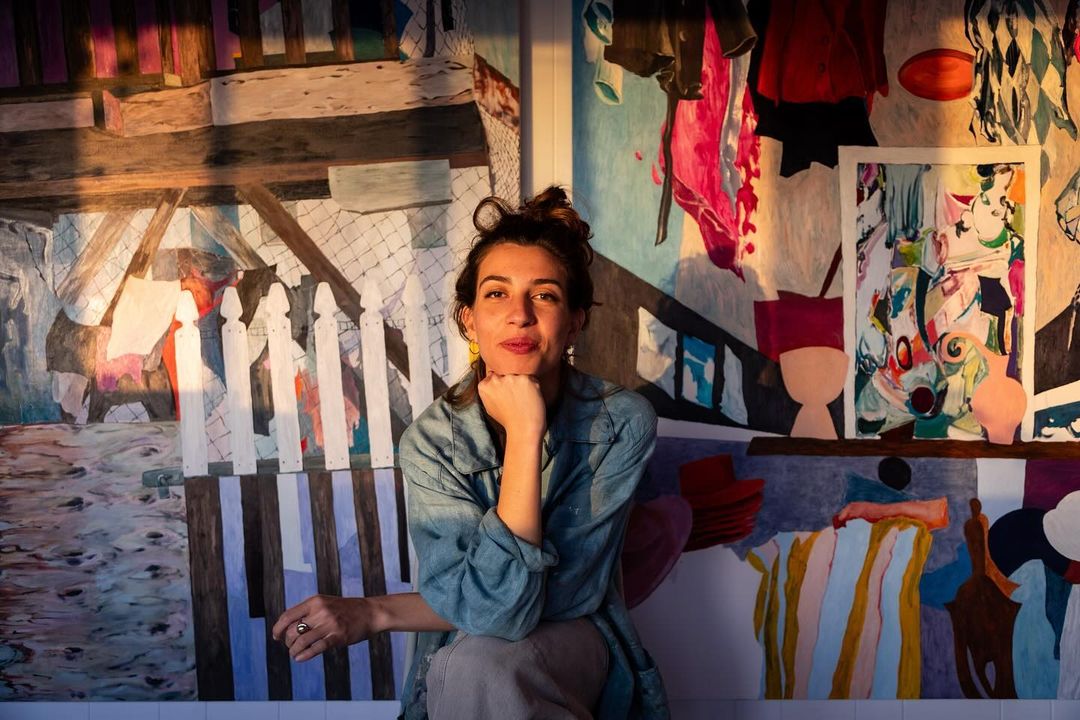
A 2022 graduate of Columbia University’s painting MFA program and the founder of new La Jolla gallery Two Rooms, the 27-year-old, New York–born artist has long been fascinated with space. Her immersive paintings offer an accessible but slightly off-kilter experience of the world: real-life rooms and buildings made strange by tweaks in dimension or color.
Wall Plates, a series of works on view at Tijuana’s Sala de Espera gallery through May 4, is something else. “I had this one light switch cover, and I started realizing it worked as a viewfinder,” Zelter recalls. “I would hold it up in my studio and I would see through it. Little sections of the world would come into focus. I started collecting them because I thought they were an interesting object—something we see every day and don’t really think about.”
The collection became the focal point—no pun intended—of her latest work. The solo show (the first of Zelter’s career) depicts 12 oversized wall plates, the nondescript, usually plastic frames that hide electrical wiring.
“Making paintings based off of objects versus places was an exciting shift for me,” Zelter says. Still, place has its, well, place. The holes in each plate offer glimpses of worlds beyond, some familiar—a chain-link fence, a skeletal tree—and some strange, a smorgasbord of texture and color.
Though they are cartoonishly large in scale, there is something sobering and even frustrating about the way they block you out from the paintings’ inner worlds. It’s a narrowing of scope in the tradition of Georgia O’Keefe, who used animal bones, camera viewfinders, and even a piece of Swiss cheese to tighten her visual perspective.
Work that denies you full access has obvious resonance at Sala de Espera, an abandoned hospital converted to a living space (gallery co-owner Luis Alonso Sánchez dwells there) and art gallery in a border town.
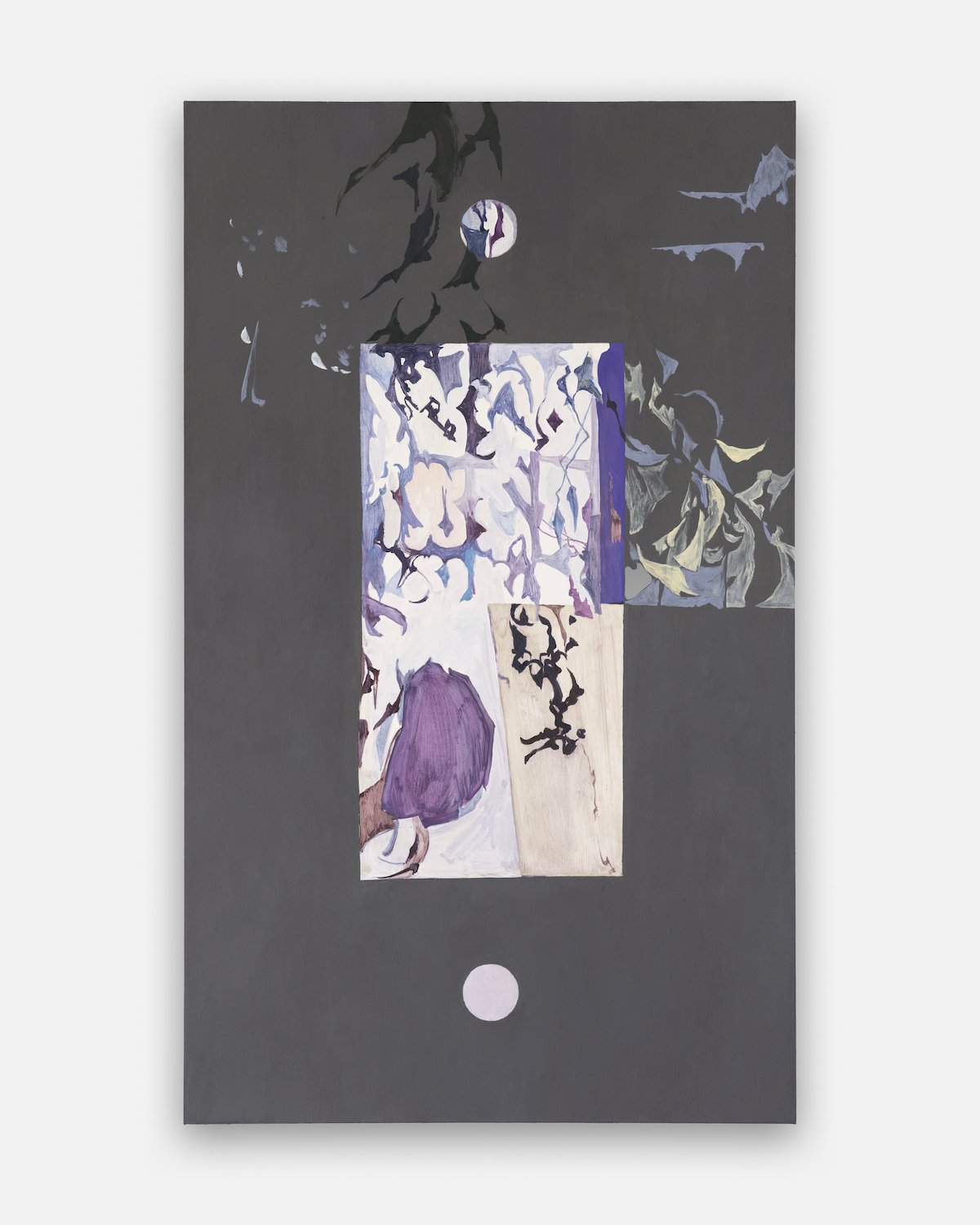
The wall plates—domestic objects so common they usually disappear—become portals to places you can neither visit nor fully witness. Only one work, Uproot and replant, brings the inner world’s textures to our side of the wall, muddying the sense that the dimension beyond the plate is one entirely separate from our own.
“There is a lot of power or possibility in switching the focus,” Zelter adds. “I hope it has this kind of layered read about the dangers of flattened representations of spaces.”
PARTNER CONTENT
After all, there’s a problem with my brother’s trick. Reducing the world to a pinprick isn’t really seeing—not when a whole story exists just past it, blurred beyond recognition.
See Wall Plates at Sala de Espera (Avenida de la Televisión, #2681 Col. Juarez, Tijuana, BC, Mexico) through May 4.

